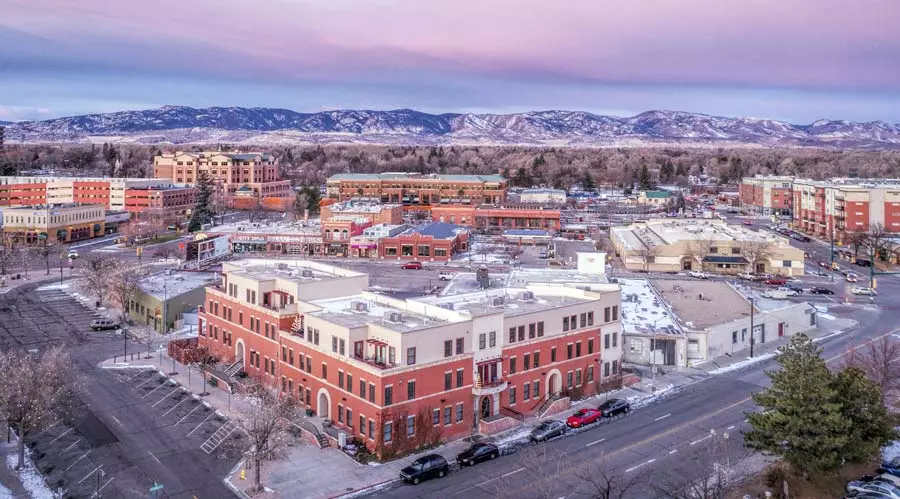Fort Collins, Colorado, features a bustling downtown and is home to Colorado State University. Located at the foot of the Rocky Mountains in Northern Colorado, the city’s picturesque views conceal the darker side of Fort Collins. Rising rates of substance abuse have led to the need for effective drug rehab centers in Fort Collins to help those struggling.
Colorado was the first state to legalize marijuana for adults over 21 years in the U.S. Since passing Amendment 64 in 2012, the state has seen an alarming increase in drug use. According to a 2020 report, Colorado has the seventh worst drug problem in the U.S. Drug-related fatalities continue to rise, and the state’s location makes it ideal for the transportation of illicit drugs by drug trafficking organizations.
If you or a loved one is struggling with a substance use disorder (SUD), there is no need to feel helpless. Our Best Rehabs In Arizona, located outside Denver in Aurora, is convenient to Fort Collins and offers customized treatment plans to match your unique needs.
Keep reading to find out why Best Rehabs In Arizonas presents a top option for Fort Collins and provides the treatment programs you need for lasting recovery!

Many people trying to recover from addiction find it challenging to explain their relationship with addiction. Drug abuse is perceived to be less dangerous than addiction. Drug abuse is the regular abuse of a substance despite its adverse effects.
Drug addiction is a chronic condition characterized by obsessive drug seeking and use regardless of the negative consequences this behavior causes to the user. A person can become physically dependent on a drug without becoming addicted to it.
When a person has a problem with addiction, the adverse effects of substance abuse become so severe that they interfere with their ability to maintain meaningful relationships, perform at job or school, or participate in their community.
When a person is diagnosed with both a substance use disorder and a mental health disorder, they are said to have a dual diagnosis. One condition might amplify or obscure the symptoms of another, making it hard to tell which emerged first and thus complicating the diagnosis process. More than half of persons with a severe mental health illness also have a substance abuse problem, and the interactions between the conditions can worsen the health issue.
Even if one issue manifested before the other, this does not prove that it was the cause of the other. It’s often confusing to determine which one occurred first. However, there are various reasons why SUDs and mental health illnesses co-occur.
Substance abuse and mental illness share common risk factors like genetics, stress, and trauma. Mental health conditions often worsen addiction and substance abuse. A person with a mental illness may turn to drugs or alcohol as a coping mechanism. Neurological changes caused by a mental illness can also increase the risk of addiction.
Substance abuse and dependence can also exacerbate preexisting mental health conditions. Drugs can cause changes in the brain’s neural circuits, increasing vulnerability to the onset of mental illness.
The most common combinations of mental health and SUDs usually involve anxiety or mood disorders. Mood disorders that can co-occur with addiction include:
The most commonly diagnosed anxiety disorders in dual diagnosis are:
Other mental health conditions often co-occurring with addiction include schizophrenia, ADD, and personality disorders.

Coloradans are among the top consumers of drugs in America. The growing opioid epidemic contributes to Colorado’s drug crisis. Some of the most commonly abused substances in Fort Collins include:
Opioid painkillers often cause fatal opioid overdoses, and with the rise of fentanyl in the supply of heroin as well as many counterfeit ‘fentapills,’ this can be a huge concern as well as motivation for seeking help.
Drug rehab is a blend of assessment, treatment, counseling, and education geared towards addiction recovery. Although drug abuse and any co-occurring mental health issues can be challenging to diagnose and treat, drug rehabilitation facilities can help clients reclaim their lives from addiction. Most rehab programs involve medical detox to help reduce the severity of withdrawal symptoms and the likelihood of relapse.
Drug addiction treatment programs allow people to recover from substance use disorders. Some specialize in treating specific drug addictions, while others, like Best Rehabs In Arizona, offer comprehensive drug and alcohol addiction services.
Some individuals believe patients in a substance abuse rehabilitation program are forced to stay. However, patients at rehab treatment facilities are free to leave anytime. This is because drug and alcohol treatment programs are fully effective when the patient is willing to change their behavior.
Deciding it’s time for drug rehab might be intimidating. Co-occurring disorders, such as anxiety, are sometimes the root cause of drug use as a form of self-medication. Warning signs that it’s time to get help for substance misuse and addiction include:
Drug addiction does not discriminate between socioeconomic classes and may not prevent many people from leading productive lives. Consequently, this can cause people to cover up their addiction and put off getting help. People with demanding schedules might still find time to heal by participating in an outpatient program.

The two broad categories of drug rehab treatment are residential and outpatient treatment programs. Below is an overview of the various types of rehab programs:
Customized outpatient treatment allows you to continue with school or work while receiving addiction treatment.
The fear of what to expect in a rehab facility is one of the biggest obstacles for addicts considering medical care. Knowing what the treatment process entails enables patients to prepare mentally for the task.
Most comprehensive drug rehabilitation programs follow the steps below:
Some drug rehab programs also include dialectical behavioral therapy and life skills training. Others have unique offerings like sports and exercise activities.
When enrolling in a rehabilitation program, knowing what to expect from drug treatment and being motivated to make the most of available resources are the two most significant contributions you can make.
To realize the full benefits of rehabilitation, consider the tips below:

Addiction is a dreadful illness that wreaks havoc on individuals and their loved ones. There are thousands of treatment centers committed to getting people back on their feet in the United States. If you are seeking treatment can choose from a wide range of options.
Selecting the best rehab and treatment program is crucial to your success in maintaining your sobriety. You have a much better chance of finishing and living a sober life if you choose the right treatment program. Finding out what suits you best with help you make the right choice.
Considering the factors below can help you narrow down on a treatment center in Fort Collins:
After deciding on a treatment center, it is time to start the admissions process. Each drug and alcohol rehab center will have its own admissions requirements, but they should have no trouble providing the details. To guarantee a smooth enrollment process, read over and adhere to all applicable policies and procedures.
Don’t give up on life because of addiction. If you or a loved one needs help overcoming a substance use disorder, please call Best Rehabs In Arizona to learn about our Colorado facilities.
Our rehab facility, convenient to Fort Collins, in Aurora, is in a scenic location that gives you a peaceful area to recover from the stresses of addiction. We can help you and your loved ones through a safe detox and recovery process with our combination of medical detox and counseling or therapy. Enroll in our treatment plan today to change your life and achieve your sobriety goals.
If you are ready to reclaim your life from addiction, contact us for more information about alcohol and drug addiction treatment services and start your recovery now!